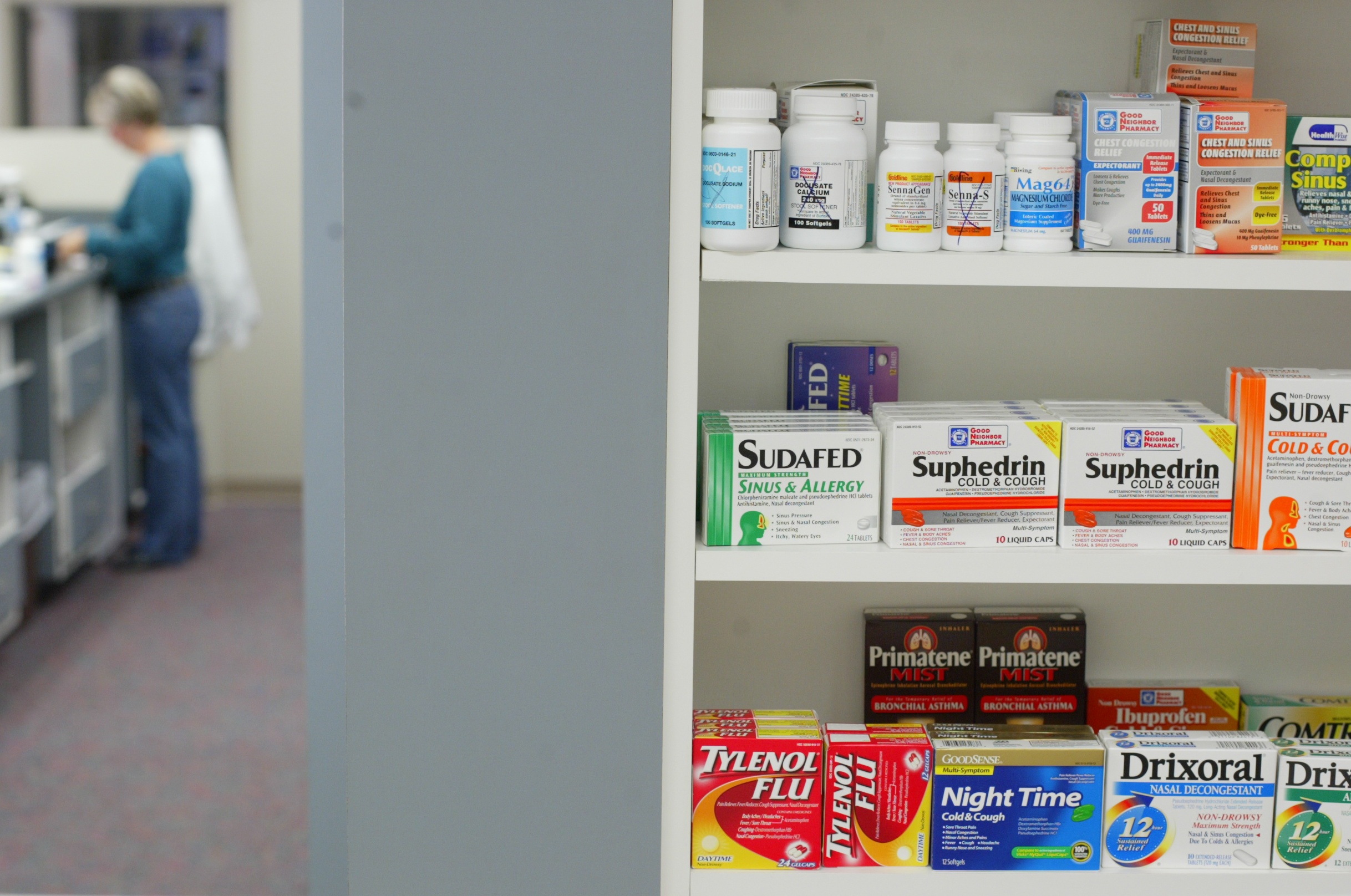Local meth controls may be catching on in Tennessee
Friday, January 1, 1904
VIDEO
This story is featured in today's TimesFreePress newscast.
LOCAL CONTROLMunicipalities across the region are eyeing new rules to make pseudoephedrine-based cold medicines available by prescription only. Below are a growing list of Tennessee towns and cities that have passed ordinances, are in the process of passing them or are studying the idea after an introduction to Winchester's effort.PASSEDHuntlandWinchesterEstill SpringsIN PROCESSCowanDecherdMonteagleTracy CitySTUDYINGDecaturManchesterTullahomaOther counties where municipal governments also expressed interest include Campbell, Dyer, Henderson, Henry, Knox, Putnam, Warren, Weekly, White and Van Buren.Source: Winchester Police Department
Since municipalities in Franklin County, Tenn., started passing ordinances to put pseudoephedrine-based cold medicines behind a doctor's prescription, the idea is beginning to spread.
That's what Winchester Police Chief Dennis Young said is needed for effective local control of cold medicines such as Sudafed-Congestion, Advil Cold & Sinus, Tylenol Cold Severe Congestion, Mucinex-D and other brands that are used to make methamphetamine.
An active chemical in these medicines, pseudoephedrine, is the primary ingredient in clandestine meth production and the target of municipal ordinances implementing local control, Young said.
So far, all five of Franklin County's towns are joined by Monteagle and Tracy City in Grundy County in crafting ordinances requiring a prescription for pseudoephedrine-based medicines, according to Young. Monteagle and Tracy City just passed first readings on ordinances this month.
And in Coffee County, Tullahoma and Manchester, officials are mulling the idea in what Young calls a "grass-roots campaign."
"The word is spreading by the district attorneys of the state, the sheriff association, the chiefs association, the Meth Task Force," Young said. "Every area is doing it on their own. I'm there as support, and I'll speak anywhere they want me to speak.
"I've got several cities in West Tennessee that are fixing to get on board," Young said. "We're headed to Decatur in Meigs County on July 9."
Tennessee was among the first states a decade ago to place pseudoephedrine-based cold medications behind the counter, requiring a valid ID and the buyer's signature before it could be sold. But the precursor-containing medications still were being tapped by meth cooks who began making the drug with smaller, reconfigured labs, officials say.
12th Judicial District Attorney Mike Taylor said the move is a response to legislation that didn't gain traction in the General Assembly this year.
"We were trying to make them scheduled substances," Taylor said of the legislative effort to reverse 'descheduling' of the drug back in the 1970s which made it publicly available.
Taylor said if metropolitan areas get on board, there might be a court challenge "to test whether it's valid or not," but he hadn't heard of any challenges yet.
"I hope that it stays in place, and I hope that it will deter a lot of this," he said. "One thing's for sure, if you don't have 'pseudo,' you don't have meth."
Dr. Todd Levin, an allergy physician at Chattanooga Allergy Clinic, said he didn't like his patients to take pseudoephedrine-based cold medicine.
"It has a lot of side effects. And if you get the 24-hour version of those, you're getting 240 milligrams of pseudoephedrine, and it's going to raise your blood pressure, upset your sleep quality, you might get heart palpitations," he said.
Levin said he and other physicians would be happy to call in a prescription for patients who really needed pseudoephedrine-based remedies.
Contact staff writer Ben Benton at bbenton@times freepress.com or 423-757-6569.

